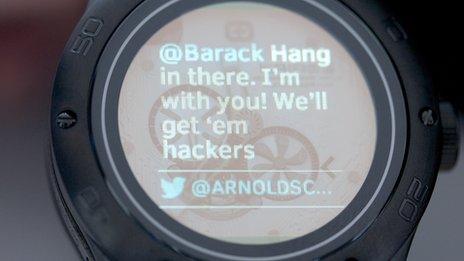Tag Heuer teams up with Google and Intel for Android watch
- Published
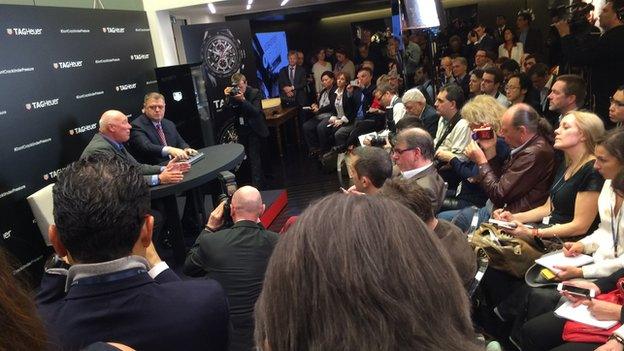
The announcement herald's Tag Heuer's push into the smartwatch market
Swiss watchmaker Tag Heuer has announced it is to build an Android Wear-powered smartwatch.
The firm - which is part of the luxury goods-maker LVMH Group - is forming a partnership with Google and the chipmaker Intel to create the device.
Switzerland dominates the high-end watch sector. This marks the first of its companies to join Google's wearable tech ecosystem.
One analyst linked the move to Apple's entry into the market.
The announcement was made at the Baselworld trade show in Switzerland.
Jean-Claude Biver, president of LVMH's watch division, told the BBC that it made sense to look beyond Switzerland's borders once his firm had decided to enter the smartwatch market.
"There are two operating systems: one is Apple's iOS, the other is Android Wear - who are we to invent another language at that level?" he said.
"It would be absurd, it would be arrogant to believe that we could develop our own [operating system]. It would be a catastrophe to believe such a stupid thing.
"There is no doubt that we could eventually go to Apple, but why should we do a partnership with Apple, who is producing watches? On the one side they would be partners, on the other a competitor.
"Google is not producing watches, so the relationship is perfect."
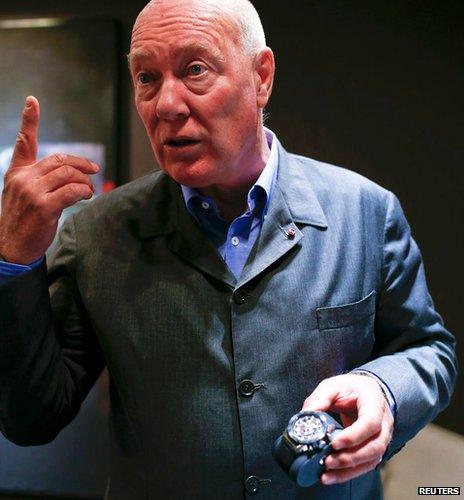
Jean-Claude Biver says the Tag Heuer smartwatch will stand out
Intel noted that Tag Heuer's 155-year-old brand had long been associated with "being dynamic, disruptive and modern" making it a good partner.
But it added that it wanted to pursue other tie-ups with traditional watchmakers.
"Our hope is that this type of partnership will set a precedent for other brands to consider diversifying into wearable tech and enhancing their products with technology," said spokeswoman Ellen Healy.
'Palpable buzz'
About 720,000 watches powered by Android Wear were shipped in 2014, according to market research firm Canalys.
To date fitness tracking wristbands have outsold the smartwatch sector as a whole by a wide margin.
However, next month's launch of the Apple Watch - backed by a big budget marketing campaign - is expected to raise interest in the sector.
Apple's wearable is only compatible with its own handsets, and phones powered by the Android operating system are much more widespread.
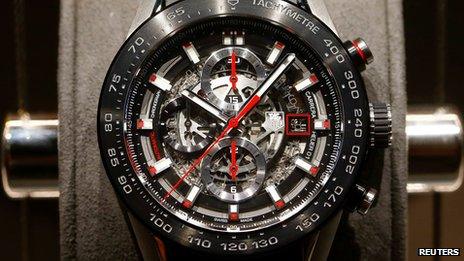
The smartwatch design has not been finalised - but Tag Heuer had others on show
"The palpable buzz around the Apple Watch has raised consumer awareness levels to a point that traditional watchmakers can no longer ignore this emerging opportunity," commented Ben Wood from the tech consultancy CCS Insight.
"Tag Heuer's decision to partner with technology companies to deliver a smartwatch will likely be the first of many similar deals. As the Baselworld event shows, the luxury goods space is big business."
Emotional smartwatch
The Swiss firm has not revealed any images of what the device will look like yet.
But Mr Biver suggested it would stand out from other smartwatches.
"The whole look of the watch will be different," he said.
"It will be a traditional look. It will not look like an Apple Watch. An Apple Watch looks like a miniaturised copy of its phone. Our watch will never look like a phone.
Hands on: Moto 360 and Android Wear
"Our watch will [have] all the emotion and the DNA of Tag Heuer and it will fit into our collection."
Earlier in the day US-based watchmaker Fossil Group gave a foretaste of its forthcoming "connected accessories" range. It will include Android Wear-powered smartwatches as well as other sensor-equipped models, as part of the firm's own tie-up with Google and Intel.
The company makes a wide range of watches under its own name and for other brands including Emporio Armani, Diesel, Michael Kors and Burberry. To do this it creates modular components that can be used across multiple designs.
'Fusion'
Fossil signalled that it would take a similar approach to creating a diverse portfolio of tech-enhanced wristwear.
"There are many many products coming to market that all look the same," said Theresa Palermo, a marketing executive at Fossil, at the firm's Baselworld press conference.
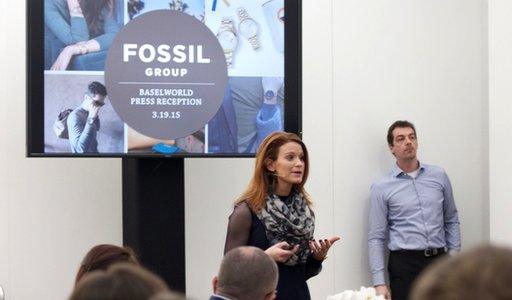
Fossil says it wants to provide a wide range of designs for its wearable tech products
"[But] what we all know and love about fashion is the ability to be unique, the ability to be different.
"That is what we see as the big opportunity - merging the fusion of technology that users need and want… with our incredible ingenuity and design innovation."
She added that the first products would be released this year.
Fossil recently reported a 1% year-on-year drop in watch sales at a time many of its rivals were reporting growth.
It accounts for about 6% of all watch sale revenues, according to market research firm Euromonitor, making it one of the five biggest firms in the sector.
- Published19 March 2015
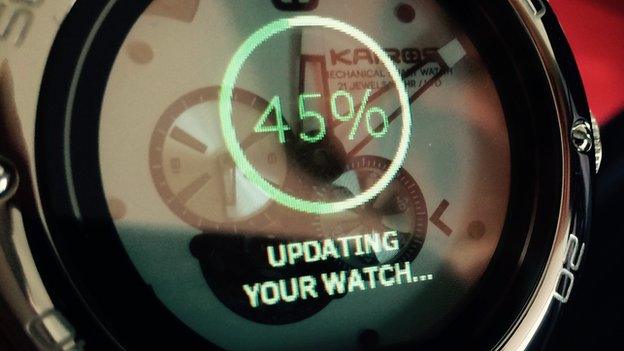
- Published19 March 2015
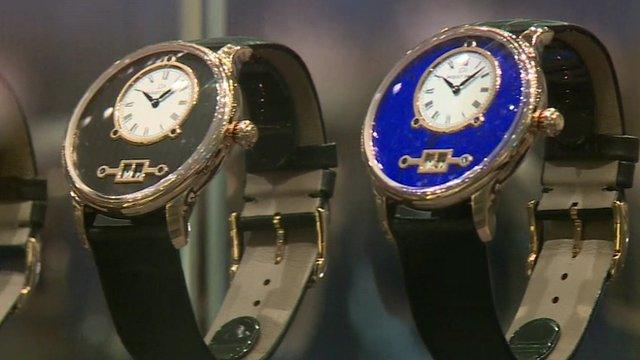
- Published19 March 2015
